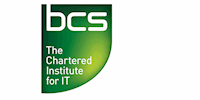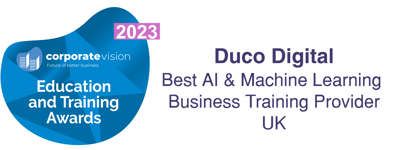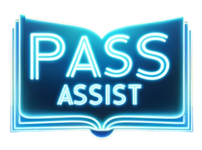
BCS Business Analysis Foundation
100% Pass Rate | Includes Exam | Free 1 Year BCS Membership When You Pass
Duco Digital
Summary
- Certificate of completion - Free
- Tutor is available to students
Add to basket or enquire
Overview
Are you looking for a career in Business Analysis?
Our BCS Business Analysis Foundation course is designed for people who want to understand business analysis, support change and improve business processes.
Did you know?
Jobs for Business Analysts on Reed show you could earn between £40k - £65k per year and worldwide over 100,000 business analysts have certified with BCS, The Chartered Institute for IT, enabling them to contribute effectively to the transformation and growth of their business.
Take your first step on your business analysis career path by attaining a BCS certification with Duco Digital Training that employers around the world respect and value.
Understand how to identify and evaluate options for improving your business and develop skills and knowledge to support successful business change programmes within your organisation.
Why Choose Duco Digital Training?
With self-study, you get a whole package of support we call PASS ASSIST, including:
- Digital access to the BCS books in Business Analysis
- 2 live video support calls with your course trainer
- Practice exam papers
- Series of support videos to get the most out of your course, making a learning plan and how to prepare for the exam
- 5-star rating
- 95% pass rate.
A live training option is available, please contact us.
Certification
BCS Foundation Certificate in Business Analysis
Course media
Description
The BCS Business Analysis Foundation course is a globally recognised professional qualification which will help develop your knowledge and understanding in these specific subjects:
1. WHAT IS BUSINESS ANALYSIS:
- Describe the business change lifecycle
- List the key principles of business analysis
- Describe the variants of the business analyst role
2. THE COMPETENCIES OF A BUSINESS ANALYST:
- Explain the concept of the T-shaped Professional
- Identify the three areas of business analysis competency
3. THE STRATEGIC CONTEXT FOR BUSINESS ANALYSIS:
- Describe business analysis and the strategic context
- Define the factors assessed using PESTLE to analyse an external environment
- Idenitfy the elements of the VMOST technique used to analyse an internal environment
- Describe the following elements of performance measurement
- Describe the structure of a SWOT analysis
- Describe the following techniques used in strategy execution
4. THE BUSINESS ANALYSIS SERVICE FRAMEWORK:
- Identify the activities in the Business Analysis Service Framework (BASF)
5. INVESTIGATING THE BUSINESS SITUATION:
- Define workshops
- Define observation
- Define interviews
- Define scenarios
- Define prototyping
- Define user role analysis
- Define quantitative approaches
- Describe two diagrammatic techniques used to record a business situation
6. ANALYSING AND MANAGING STAKEHOLDERS:
- Identify stakeholder categories using the stakeholder wheel
- Describe the use of the Power/Interest grid technique to analyse stakeholders
- Describe stakeholder responsibilities using a RACI chart
7. IMPROVING BUSINESS SERVICES AND PROCESSES:
- Explain the business process hierarchy
- List the following techniques used to model the enterprise level processes
- Describe the following aspects of the event-response level
- Describe the following aspects of the actor-task level
- Describe the following aspects of the as-is process model
- Identify generic approaches to improving business processes
- Define the purpose of customer journey maps
8. DEFINING THE SOLUTION:
- Describe the gap analysis process
- Explain the use of POPIT™ in gap analysis
- Describe the process for developing options
- Describe the purpose of design thinking
9. MAKING THE BUSINESS CASE:
- Describe the lifecycle for a business case in business case development
- Identify the areas of feasibility assessment
- Define the structure and contents of a business case
- List the key features relevant to the production of a business case within an Agile
environment - Identify the elements of a CARDI log
- Explain the purpose of the following investment appraisal techniques
10. ESTABLISHING THE REQUIREMENTS:
- Explain the requirements engineering (RE) framework
- Identify the following actors in requirements engineering
- Identify the types of requirement
- Describe the hierarchy of requirements
- Describe the requirements elicitation techniques
- Explain the following elements of requirements analysis
11. DOCUMENTING AND MODELLING REQUIREMENTS:
- Identify the following documentation styles
- List the elements of a requirements catalogue
- Describe the format of user stories
- Describe the elements of the use case diagram used to model functional requirements
- Describe the elements of a class model used to model data
- Describe the product backlog in modelling and documentation in an Agile environment
- Define the structure of the business requirements document
12. VALIDATING AND MANAGING REQUIREMENTS:
- Describe the following types of requirements validation
- Describe the following aspects of requirements management
13. DELIVERING THE REQUIREMENTS:
- Describe the following types of delivery lifecycle
- Explain advantages and disadvantages of the lifecycles
14. DELIVERING THE BUSINESS SOLUTION:
- Explain the role of the business analyst in the business change lifecycle
- Describe the role of the business analyst during the design, development and test
stages - Describe the following approaches used in the implementation stage
- Describe how the benefits plan is used in the realisation stage
BCS Business Analysis Foundation Exam Information:
- It is a 40 multiple-choice exam
- Pass mark is 26/40 points or 65%
- Duration of the exam is 60 minutes
- The exam will be supervised virtually.
Who is BCS?
Recognised globally by corporations, academics and IT professionals, BCS is the British Computer Society, more commonly known as the Chartered Institute for IT.
They have over 60,000 members in 150 countries, and a wider community of business leaders, educators, practitioners and policy-makers all committed to their mission of leading the IT industry through its ethical challenges, to support the people who work in the industry, and to make IT good for society.
What our students say about us:
"The training provided will assist me to conduct AI research projects in a more professional and systematic way. The knowledge provided will be incredibly valuable for my future study in the field of computer vision." — Muhammad Lecturer and AI PhD Candidate
“Good training materials for remote learning, and the most impressive part was the speed at which they responded to questions.” — Tom Data Protection Practitioner
"This proved to be a very valuable course to me." — Janet Business Analyst
Meet Our Instructor
Soni is a BCS Accredited Business Analysis trainer with over 20 years’ experience working as a Business Analyst complimented with a MEng degree in Computer Science. In addition, she has experience of project management, enterprise architecture and agile project delivery. Her career as a senior business analyst has involved delivering large digital transformation programmes for both government and corporate organisations in a variety of sectors such as Defence, Banking, Cyber Security, Telecommunications, and IT. She is passionate about the value & importance of business analysis in bridging the gap between Business & technology.
Who is this course for?
For who is the BCS Business Analysis Foundation course?
Whether you're a seasoned professional looking to refine your skill set or someone embarking on a new career path, the BCS Business Analysis Foundation course is designed for you. It's perfect for:
- Aspiring Business Analysts: Individuals eager to break into the dynamic world of business analysis and carve out a rewarding career.
- IT and Computing Students: University students seeking to supplement their academic knowledge with practical, industry-relevant skills.
- Career Changers: Those considering a transition into business analysis from diverse backgrounds, eager to leverage their existing expertise in new ways.
- Process Improvement Enthusiasts: Professionals focused on streamlining operations and enhancing efficiencies within organizations.
- Project Managers and Executives: Mid-level managers, senior leaders, and directors aiming to bolster their analytical prowess and drive strategic decision-making.
Specifically, the following roles could benefit from this course (as well as good examples of career opportunities):
- Business Analyst
- Business Architect
- Business Systems Analyst
- Data Analyst
- Enterprise Analyst
- Management Consultant
- Process Analyst
- Product Manager
- Product Owner
- Project Manager
- and Systems Analyst.
Requirements
- None - no experience or qualifications are needed, although if you have no experience in business analysis that you should purchase the BCS Business Analysis book in the reading list to accompany this course or consider taking our BCS Foundation in Business Anaysis first as that covers essential concepts in detail.
- We recommend beginners to consult the reading list and explore recent news and case studies using Business Analysis in the sector they work in.
- An internet connection with a mobile/tablet or laptop is required.
Career path
Jobs for Business Analysts on Reed show you could earn between £40k - £65k per year and worldwide over 100,000 business analysts have certified with BCS, The Chartered Institute for IT, enabling them to contribute effectively to the transformation and growth of their business.
Questions and answers
What is the best course in business analytics to go for to pursue a career or start off properly. Thank you
Answer:Thanks for your question. This is a broad question to answer, however, we’d always advise to research some of the potential jobs you think you might like to do, then look at job vacancies to understand what skills and experience are essential and preferred. Potentially, you could always speak to the HR team of a company to ask them directly if you were to possess a particular certification, would they consider an application from you. I hope this answer helps.
This was helpful.
Certificates
Certificate of completion
Digital certificate - Included
The certificate is usually available to download from the BCS portal within 48 hours of passing the exam.
Reviews
Currently there are no reviews for this course. Be the first to leave a review.
Legal information
This course is advertised on reed.co.uk by the Course Provider, whose terms and conditions apply. Purchases are made directly from the Course Provider, and as such, content and materials are supplied by the Course Provider directly. Reed is acting as agent and not reseller in relation to this course. Reed's only responsibility is to facilitate your payment for the course. It is your responsibility to review and agree to the Course Provider's terms and conditions and satisfy yourself as to the suitability of the course you intend to purchase. Reed will not have any responsibility for the content of the course and/or associated materials.







